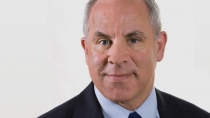Programs for Struggling Teens: Substance Abuse Courts
Many different kinds of services and programs are available for struggling teens. Some provide relatively short-term crisis intervention, and others provide long-term care and treatment. Parents may find it useful to think about services and programs as a spectrum of options. At one end of the spectrum are services and programs that emphasize educational issues and, in addition, pay attention to teenagers’ emotional needs. Examples include traditional high schools and alternative, community-based high schools that work with teens and parents to develop an IEP (Individualized Education Program) or 504 plan (which guarantees an appropriate special education as well as accessibility to regular education programs, as provided by the Americans with Disabilities Act). At the other end of the spectrum are programs that focus primarily on struggling teens’ psychiatric and emotional needs as well as provide teens with educational services. Examples include therapeutic boarding schools and residential treatment centers. In the middle of the spectrum are schools and programs that offer a balanced, simultaneous focus on teens’ personal growth and educational needs (for example, “emotional-growth” boarding schools).
Generally, struggling teens should receive services in their home communities rather than in schools and programs away from home. Community-based services may increase the likelihood that a youth will stay in school and maintain important ties with supportive family members and friends. Of course, in some instances the best way to meet a struggling teen’s needs is to enroll the teen in a specialty program or school away from the home community. This approach may be necessary when the teen’s unique needs cannot be met locally or when the teen would benefit from a completely new social environment, away from local distractions and negative influences.
During the next several blog posts, I will provide a comprehensive overview of a variety of programs and schools that can be very helpful to struggling teens and their families. I will begin with what are known as substance abuse courts.
Many communities sponsor substance abuse courts, also known as drug courts. These specialty courts use a supportive and nurturing approach rather than a punitive one to help struggling teens. Using case management, counseling, tutoring, mentoring, and parent education, the goal of the substance abuse court is to help the teen to prevent future problems and more formal involvement with the juvenile justice system.
Substance abuse courts integrate alcohol and drug treatment services with justice system case processing. Using a nonadversarial approach, prosecution and defense counsel attempt to address teenagers’ substance abuse issues and promote public safety while protecting participants’ due process rights. Typically, eligible participants are identified early in the judicial process – usually soon after arrest – and promptly placed in the substance abuse court program. Substance abuse courts provide access to a continuum of alcohol, drug, and related treatment. Teenagers enrolled in the program are monitored by frequent alcohol and other drug testing.
An Example of a Substance Abuse Court
The “Substance Abuse Court” (SAC), located in a large urban/suburban county, combines the close supervision of the judicial process with alcohol and drug treatment services. The court’s goal is to reduce recidivism by maintaining drug offenders in a highly structured treatment setting until they show evidence of clean and sober lifestyles. The SAC allows serious drug offenders to participate in 18 months of supervised treatment under a single treatment provider to earn a dismissal of the delinquency charge. A second SAC program provides an opportunity for offenders on probation to participate in 12 months of supervised treatment offered by several community-based treatment providers as an alternative to incarceration. These programs are for nonviolent offenders who demonstrate evidence of alcohol or drug abuse. The participants are identified early in the court process by probation officers, prosecutors, defense attorneys, and judges. Defendants charged with drug possession; drug use; or other nonviolent offenses, such as theft, are considered for SAC programs if evidence indicates that serious substance abuse is a primary cause of the delinquent behavior.
Under the program, the offender is adjudicated by the court and participates in court-monitored treatment as a condition of probation. The offender agrees that failure to participate in the treatment program satisfactorily will result in a formal trial in which the judge only has to read the police report to determine whether the defendant committed the alleged offense. For each offender, a treatment plan is developed that includes individual and group counseling, frequent drug testing, regular Alcoholics Anonymous or Narcotics Anonymous meetings, and weekly court appearances. To graduate, the offender must complete the entire course of treatment and must have had no “dirty” drug tests or program violations for at least six months. Any failure in program participation or dirty drug tests is dealt with by use of graduated sanctions ranging from increased program participation to incarceration

Frederic Reamer Ph.D. Bio
Dr. Reamer is a professor in the Graduate Social Work Program at Rhode Island College.
Learn More